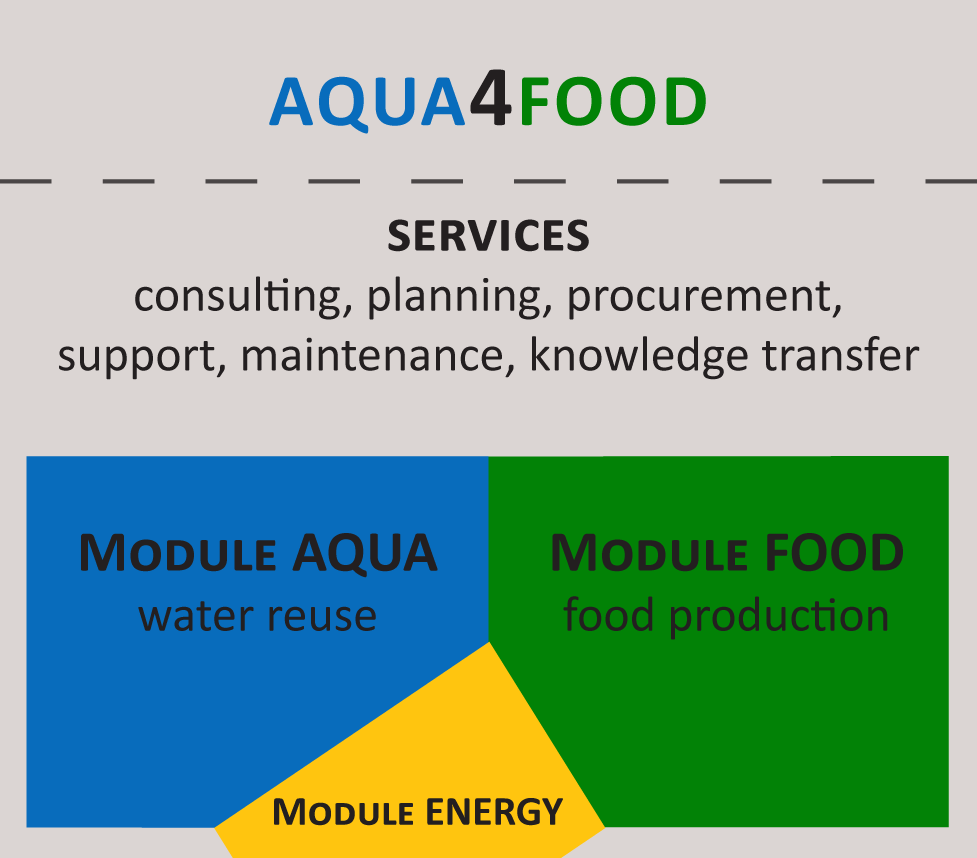AQUA4FOODconnecting water reuse and food production
system solution

AQUA4FOOD
system solution
Aqua4Food is a holistic system solution, which combines a decentralized water reuse and a local food production. The module AQUA and the module FOOD will be designed to adapt to the specific location and can be connected to the module ENERGY for operating self-sufficient. We accompany you throughout the entire process, from planning and procurement through to implementation, support and maintenance. In addition, we offer advice and knowledge transfer on separate topics in the circular economy to make your system solution as sustainable and ecological as possible.
motives & vision
motives
Water is the most important resource of life and an indispensable foundation for the functioning of ecosystems and human well-being.
Although water is globally sufficient available, it isn’t always there, where it’s needed. This creates a regional risk of water overuse, which can lower groundwater levels and dry entire lakes and rivers. The annual rainfall is then no longer sufficient to replenish the water resources and leads to water shortages. According to OECD projections, by 2050, 40% of the world's population will live in areas of water scarcity.
However, how much water is used does not depend significantly on private water consumption. The greatest need for water is indirectly determined by the production of food. 70% of global water consumption is attributed to agricultural production. Climate change and population growth will further increase the pressure on food needs and consequently water resources.
vision
Decentralised water recycling systems offer the option of treating waste water in a way that it will be hygienically acceptable for it's use as irrigation water. Regionally it can be used in the food production and secure the future food supply. The natural water resources can thus be conserved and in the future be available for the functionality of the ecosystems and human health.
combinable modules
AQUA
A water treatment aligned to the needs of the food production.
.
water sources: rainwater, grey water, municipal wastewater
. provision of an hygenically harmless and nutrient-rich irrgiation water
. reliable unit which needs very little maintenance and has low operating costs
more
ENERGY
Energy self-sufficient by renewable energy system.
.
sources of energy: sun, wind, water
.
linked with battery storage for a secure supply
FOOD
Focused on decentralised food production systems.
. closed water cycles
. vertical garden, aquaponics, hydroponics
.
efficient irrigation technologies
.
smart farm systems
more
SERVICES
The system solution as sustainable and ecological as possible.
. consulting
. planning
. procurement
. support
. maintenance
. knowledge transfer
